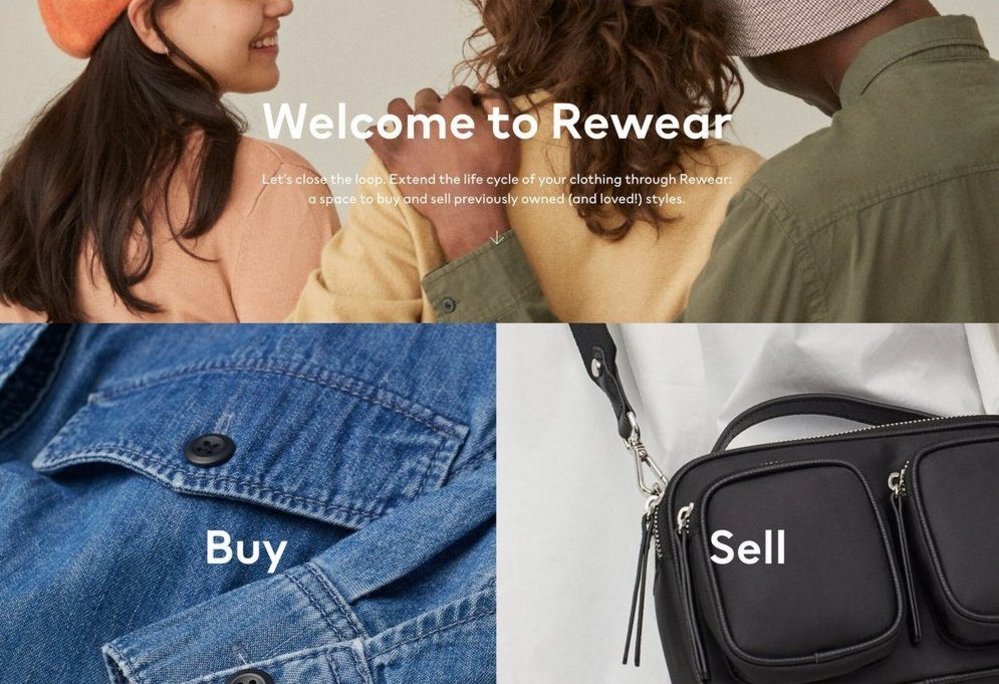Trends
Then, Now, Next: looking ahead to 2023. A Future of Frugality
Megan Hotson
25/11/22

A Sky news Survey from June 2022 discovered that 60% of Brits are even more worried about the cost-of-living crisis than they were six months before. Despite the recent Cop27 summit, and the ongoing anxieties surrounding the climate crisis – consumers’ priorities have clearly shifted. People are prioritising price, over the planet.
Resale is part of a limitarian approach to living which will grow, and be used as a budgeting tool, softening the effects of a tough economic climate. This emergent mindset will have a profound impact for retailers who need to re-think how to appeal to this growing approach to consumption.
And with the tightening of purse strings – consumers are also seeking activities that alleviate economic anxieties. Looking ahead to 2023, brands will need to offer tangible solutions to support people, helping them manage any economic anxiety they are experiencing.
Clothes as Currency
Using clothes as currency is a noticeable tipping point in consumer’s mindsets around re-sale. Consumers are not just buying resold garments to save money, but they are using re-selling as a budgeting tool to unleash extra cash-flow.
Cancer Research UK have revealed that their shops have seen a record 14% turnover surge in the last few months – whilst Google reports a 50% rise in online searches for ‘second-hand clothing’ in the last year.
Using clothes as currency is a budgeting tool that is being led by the younger generation, with 30% of Gen Z-ers and 28% of Millennials choosing to buy more second-hand than usual.
Brands have already begun responding to this shift in consumption. Big fashion names like Hugo Boss, and athleisure brand Lululemon are launching resale platforms, and H&M have created their ‘Re:wear’ platform.
 ‘Re:wear’ encourages consumers to buy and sell second-hand styles from any brand. H&M recognised a want from their customers to extend the life cycle of their clothes to create a circular approach to retail, which is also kinder to peoples’ wallets.
‘Re:wear’ encourages consumers to buy and sell second-hand styles from any brand. H&M recognised a want from their customers to extend the life cycle of their clothes to create a circular approach to retail, which is also kinder to peoples’ wallets.
Expect to see multiple brands take up this approach to buying and selling as a report from Thredup reveals that 52% of retail executives feel providing resale is now a ‘must’ for retailers.
Rental platforms have also taken off, with people investing in their wardrobes specifically for the purpose of making money back by regularly renting out items of their closet via rental services, or apps. Vogue UK reports that some lenders are making in excess of £20,000 per just from renting their clothes and accessories to others.
Budget Luxury
Creating luxurious moments was a familiar practice during the pandemic, allowing consumers to escape the depressing tropes of lockdown, or social guidelines which limited the nation’s social activity.
Luxury is something consumers are looking to again in the context of continued instability, but this time through a different lens.
 Affordable indulgence is something we will see consumers keen to create looking ahead to cut costs by entertaining at home. In John Lewis’ recent ‘Moments Economy’ report – two thirds of consumers revealed they still desired to celebrate modestly with their loved ones despite the cost-of-living crisis.
Affordable indulgence is something we will see consumers keen to create looking ahead to cut costs by entertaining at home. In John Lewis’ recent ‘Moments Economy’ report – two thirds of consumers revealed they still desired to celebrate modestly with their loved ones despite the cost-of-living crisis.
A key indicator of this is the 88% rise in online searches for champagne flutes, and wine glasses this year. John Lewis is leaning into what they call a ‘moments economy’, looking for ways to facilitate more affordable luxury.
Their efforts go beyond creating more affordable products, as they endeavour to re-design their store layouts – allowing customers to shop or browse by ‘moments’ replacing their traditional their existing categories.
Key Takeaways
– Brands must create products that have longevity given the ongoing desire to re-sell and consume second-hand. Fashion items for example that can be worn all-year round, will be better suited to this emerging approach to consumption.
– In the context of economic uncertainty, consumers are de-prioritising the planet in place of profit. How can brands help their consumers re-focus their attention on the climate crisis by reminding people of the importance of frugal consumption that is still conscious?
– People do not want to compromise on celebrating moments of indulgence, despite the rise of a limitarian way of living. Brands should focus on more accessible pleasure to create indulgent moments for consumers.
– Brands have a responsibility to help consumers manage their stress and support them as they continue to feel the strain of the economic climate; Lloyds Banking, who have developed an accessible mental health program, which will include more accessible mental health services to people in need.
– Prioritise transparency. As price rises become common practice, consumers will gravitate towards brands that harness transparent, honest messaging around future inflations.


